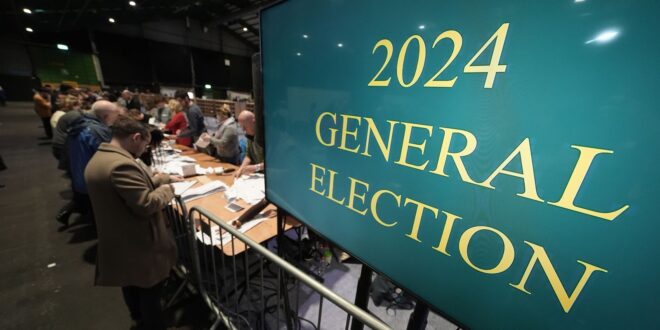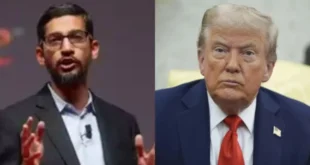Today, the three largest political parties will hold their first parliamentary meetings since the 2024 General Election, marking the start of negotiations to form the next coalition government.
With Fianna Fáil having ten more seats than Fine Gael in the 34th Dáil, Political Correspondent Paul Cunningham explores what this might mean for the anticipated coalition talks between the two parties.
Fianna Fáil leader Micheál Martin was at Farmleigh last night, stressing the need for the next government to have a comprehensive and cohesive Programme for Government. He hosted British Northern Secretary Hilary Benn, but the subsequent news conference focused heavily on coalition formation.
Fine Gael deputy leader Helen McEntee, who also attended the event, echoed Martin’s sentiment, saying the previous coalition worked well due to a detailed agreed document. Martin emphasized that policy would largely dictate the coalition’s formation but acknowledged that the structure of the government would also be crucial. Fine Gael is demanding “parity of esteem,” which implies a coalition similar to the last one. However, with Fianna Fáil having ten more seats, questions arise about the feasibility of this arrangement.
In the previous coalition, Fianna Fáil and Fine Gael shared the role of taoiseach, which made sense when Fianna Fáil had only three more seats. With a ten-seat gap now, some Fianna Fáil members believe changes are needed. Fine Gael insists on a rotating taoiseach, but some in Fianna Fáil think Micheál Martin should serve three years and Simon Harris two. Fine Gael might point out that in 2016, their leader Enda Kenny offered a rotating taoiseach to Martin despite a six-seat advantage, which Martin declined.
If Fianna Fáil offers Fine Gael a term as taoiseach similar to Martin’s, attention will shift to cabinet positions. Fianna Fáil will likely push for a greater number of senior and possibly junior ministers, arguing that their larger mandate should be reflected in government.
Another option could be for Fianna Fáil to demand specific cabinet portfolios. If the coalition includes Independent TDs instead of parties like the Social Democrats or Labour, there will be more cabinet positions available for both parties.
Former Finance Minister Michael McGrath recently became the European Commissioner for Justice, a five-year term. After this period, the Dublin government can re-nominate him or choose another candidate, a decision that could be influenced by coalition negotiations.
The Ceann Comhairle of the Dáil is now elected by a private vote of all 174 TDs, rather than being dictated by the government. However, Martin could seek Fine Gael’s support to secure the position for an experienced Fianna Fáil deputy.
One final, seemingly trivial issue is office space in Leinster House. After the 2011 General Election, Fianna Fáil’s significantly reduced number of TDs had to vacate their traditional offices. In 2024, Fianna Fáil might aim to reclaim these offices, providing a psychological boost to the party.
Despite the complex political chess of future government structure, some Fianna Fáil deputies express confidence in Martin’s ability to navigate the discussions with wisdom and calm.
Let’s see how these negotiations unfold.
 The Daily Star Ireland
The Daily Star Ireland



